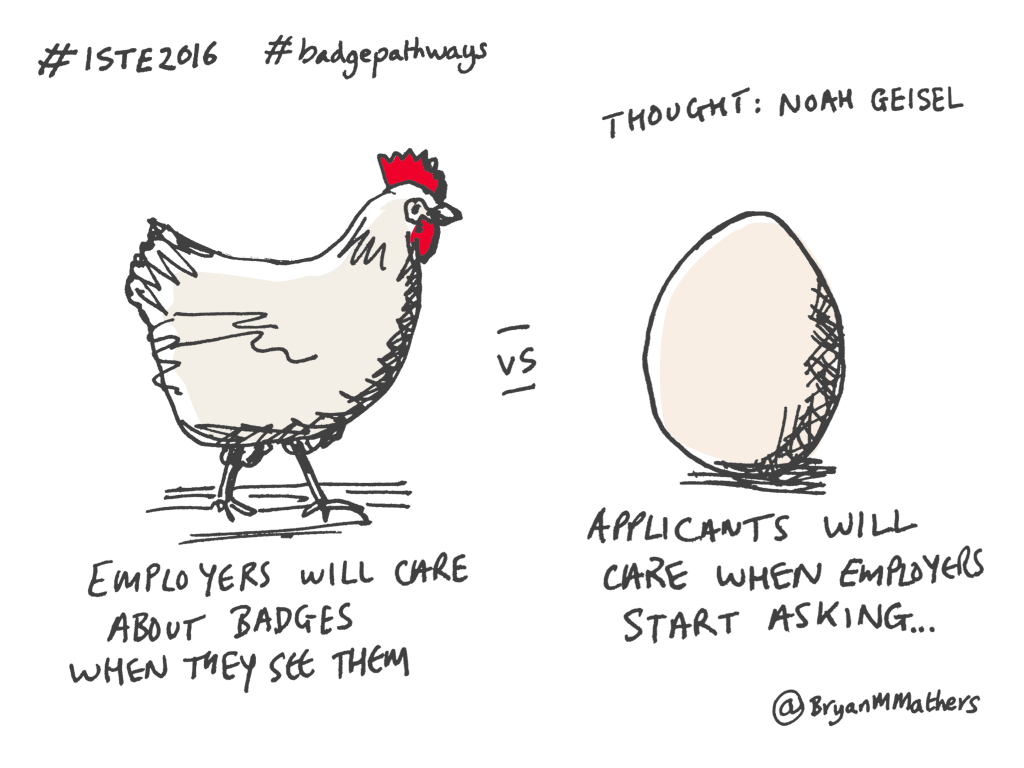The Unseen Threads of Open Recognition

This is my second post this week on threads, although this has nothing to do with Meta or the Fediverse.
Instead, as I head to The Badge Summit in Colorado, I want to reflect even more on the differences between microcredentials and Open Recognition. Both are usually based on the Open Badges standard, but the emphasis is quite different.
Perhaps it’s easiest to explain the difference by using a metaphor. Open Recognition is like a detailed tapestry which tells a nuanced story of an individuals lifelong (and lifewide) journey. It’s not just woven with one type of thread, but represents a holistic view of knowledge, skills, experiences, talents, and aspirations.
This tapestry, as Serge Ravet has pointed out, also requires threads from other people. That’s because recognition is reflexive; it tells you more than just about the individual in question.
Microcredentials can form part of this tapestry, but for the purpose of this metaphor I’m going to contrast them more as a string of beads. Each bead is beautifully-poished and carefully-threaded. It stands for something immediately recognisable (and potentially tradeable) in the wider world.
It’s great that microcredentials exist. I think that they have the potential of helping democratise access to higher education, provide just-in-time learning, and enable a more diverse pipeline into decent jobs.
But life isn’t just about work, it’s about human flourishing. Some of that can happen with the jobs that we do, but much of it happens elsewhere. Open Recognition is the acknowledgement of talents, skills, and aspirations that extend beyond formal credentialing.
As I’ve explained elsewhere, Open Recognition denotes the rights of individuals, communities, and territories to ascribe their own labels and definitions to their educational journeys. The frameworks for Open Recognition may be emergent and/or implicit, much like the threads in a tapestry, resulting in a comprehensive and nuanced understanding of a person’s learning journey.
I’m heading to The Badge Summit, as I did last year, determined to help people understand the holistic power of Open Recognition. I’m joined in this endeavour by comrades who will also be peppering the event with their own related sessions. Don Presant has created a timetable for those interested in attending them.
To be honest, it feels a lot like the early days of Open Badges, trying to explain why something that feels so obviously necessary and awesome is valuable. I think this is partly because Open Badges, since they’ve been stewarded by 1EdTech (formely IMS Global Learning Consortium) have been captured by a neoliberal attempt to turn universities as mere training grounds for large employers. But that’s a whole other blog post…
Photo by Erol Ahmed on Unsplash

